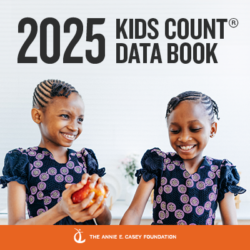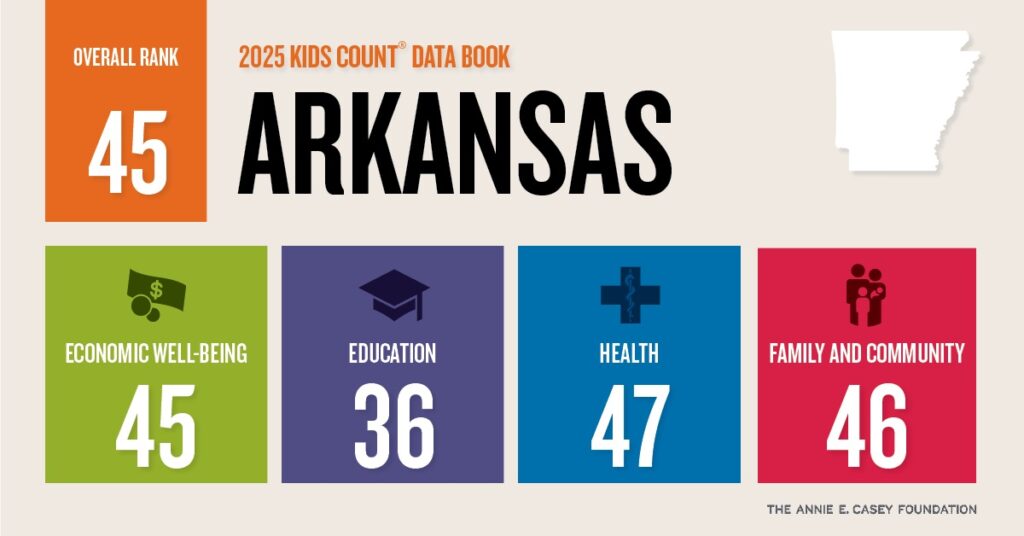
Arkansas Advocates Urges Focus on Investing in Kids and Families
Arkansas ranks 45th in child well-being, according to the 2025 KIDS COUNT Data Book, a 50-state report of recent data developed by the Annie E. Casey Foundation analyzing how kids are faring in post-pandemic America. The data show Arkansas leaders must do more to invest in basic needs and community-enriching programs for Arkansas to become a top-tier state for kids.
The number of Arkansas’s children in poverty has decreased by 7,000 since 2019. Despite this progress, 21% of the state’s kids still live in poverty (more than one in five), and Arkansas remains well above the national average of 16%.
It is important to note the racial disparities hidden in the data. When parsed out by race, child poverty rates are unevenly distributed: Arkansas’s Black children have a poverty rate of 43%; 21% of Arkansas’s children of two or more races live in poverty; 19% of Hispanic or Latino children in Arkansas live in poverty; while Non-Hispanic White children in Arkansas have the lowest rates of child poverty at 15%. These differences are the result of current and historic policies that have excluded BIPOC (Black, Indigenous and People of Color) individuals, families and communities from critical investments and resources.
In addition to being ranked 44th for child poverty, Arkansas is in the bottom 10 states on the following indicators:
- Teens ages 16-19 not attending school and not working
- 8th graders below proficient on math level
- Low-birthweight babies
- Child and teen deaths
- Teens ages 10-17 who are overweight or obese
- Children in single-parent families
- Children living in high-poverty areas
- Teen birth rate
We cannot become complacent as the result of modest improvements on some indicators. If you look at the trends in the data from before the pandemic and now, we should be particularly alarmed by the outcomes for our teens. We’re trending in the wrong direction for teens not attending school and not working and teens who are overweight or obese. And while Arkansas’s teen birth rate improves each year, we’re stuck at or near the bottom because of the policy choices and investments we’re not making.
Each year, the Data Book presents national and state data from 16 indicators in four domains — economic well-being, education, health, and family and community factors — and ranks the states according to how children are faring overall.

In its 36th year of publication, the KIDS COUNT® Data Book provides reliable statewide numbers to help leaders see where progress is being made, where greater support is needed and which strategies are making a difference. Arkansas Advocates encourages lawmakers and officials in Arkansas to use this detailed information to unite across party lines and respond with initiatives that invest in young people. By offering a local road map, the Data Book equips policymakers, advocates and communities with the information they need to make decisions that help kids and young people thrive.
We know what kids need to grow up healthy and connected so they can thrive as adults. Stable homes, strong schools, nutritious food, meaningful relationships and opportunities to learn, play and grow. Programs that meet these needs are smart investments, fostering long-term gains like employment and economic growth.
The 2025 KIDS COUNT Data Book is available at www.aecf.org/databook.
